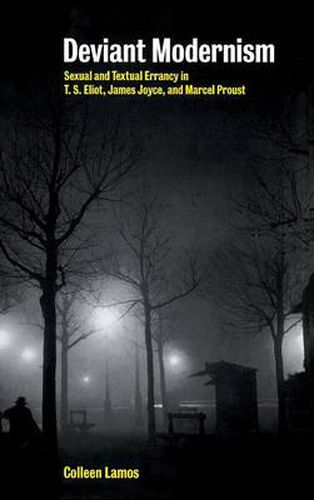Readings Newsletter
Become a Readings Member to make your shopping experience even easier.
Sign in or sign up for free!
You’re not far away from qualifying for FREE standard shipping within Australia
You’ve qualified for FREE standard shipping within Australia
The cart is loading…






This original study re-evaluates central texts of the modernist canon - Eliot’s early poetry including The Waste Land, Joyce’s Ulysses and Proust’s Remembrance of Things Past - by examining sexual energies and identifications in them which are typically regarded as perverse. According to modern cultural discourses and psychosexual categorizations, these deviant desires and identifications feminize men, or tend to render them homosexual. Colleen Lamos’s analysis of the operations of gender and sexuality in these texts reveals conflicts, concerning the definition of masculine heterosexuality, which cut across the aesthetics of modernism. She argues that canonical male modernism, far from being a monolithic entity with a coherently conservative political agenda, is in fact the site of errant impulses and unresolved struggles. What emerges is a reconsideration of modernist literature as a whole, and a recognition of the heterogeneous forces which formed and deformed modernism.
$9.00 standard shipping within Australia
FREE standard shipping within Australia for orders over $100.00
Express & International shipping calculated at checkout
Stock availability can be subject to change without notice. We recommend calling the shop or contacting our online team to check availability of low stock items. Please see our Shopping Online page for more details.
This original study re-evaluates central texts of the modernist canon - Eliot’s early poetry including The Waste Land, Joyce’s Ulysses and Proust’s Remembrance of Things Past - by examining sexual energies and identifications in them which are typically regarded as perverse. According to modern cultural discourses and psychosexual categorizations, these deviant desires and identifications feminize men, or tend to render them homosexual. Colleen Lamos’s analysis of the operations of gender and sexuality in these texts reveals conflicts, concerning the definition of masculine heterosexuality, which cut across the aesthetics of modernism. She argues that canonical male modernism, far from being a monolithic entity with a coherently conservative political agenda, is in fact the site of errant impulses and unresolved struggles. What emerges is a reconsideration of modernist literature as a whole, and a recognition of the heterogeneous forces which formed and deformed modernism.